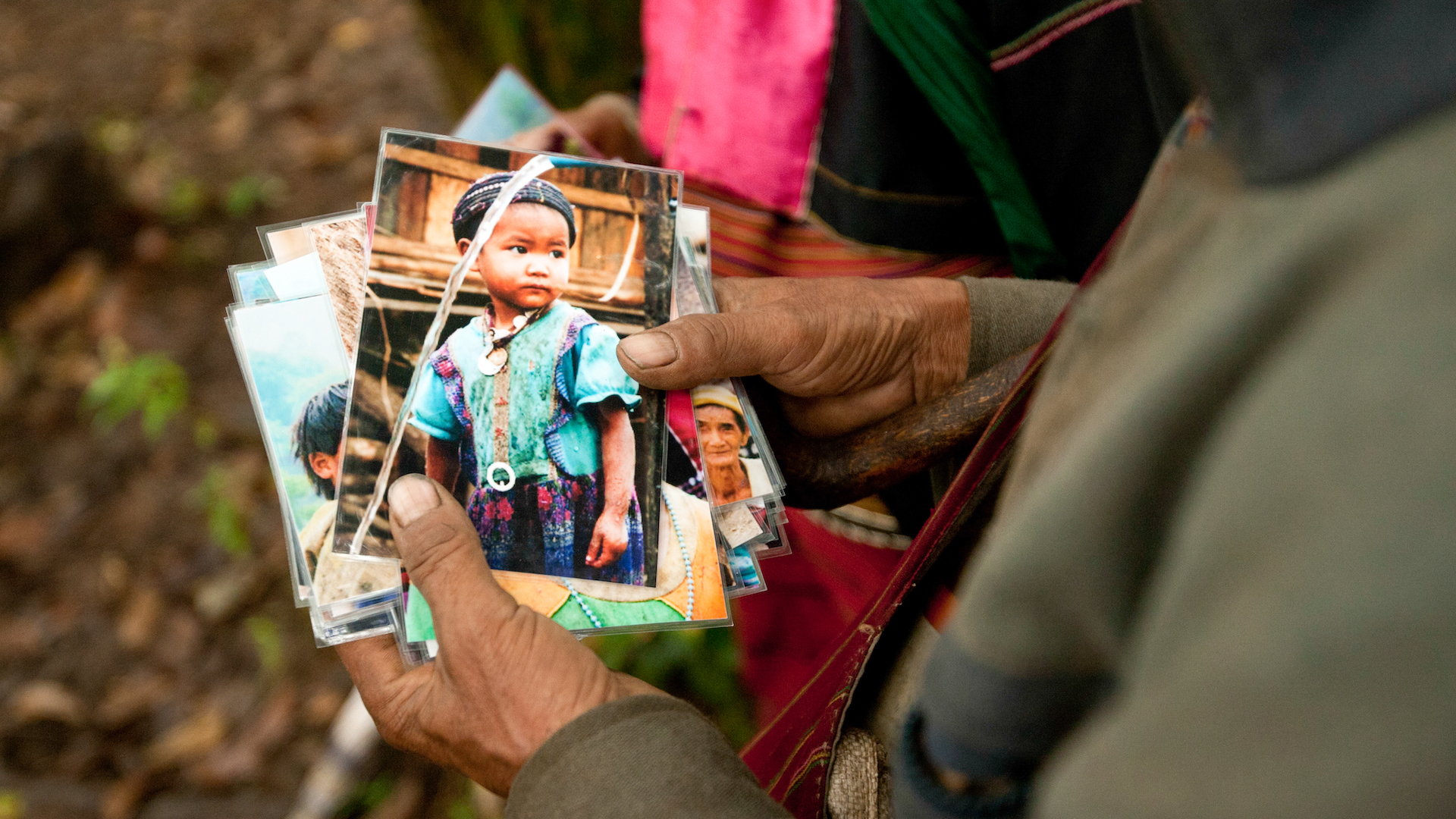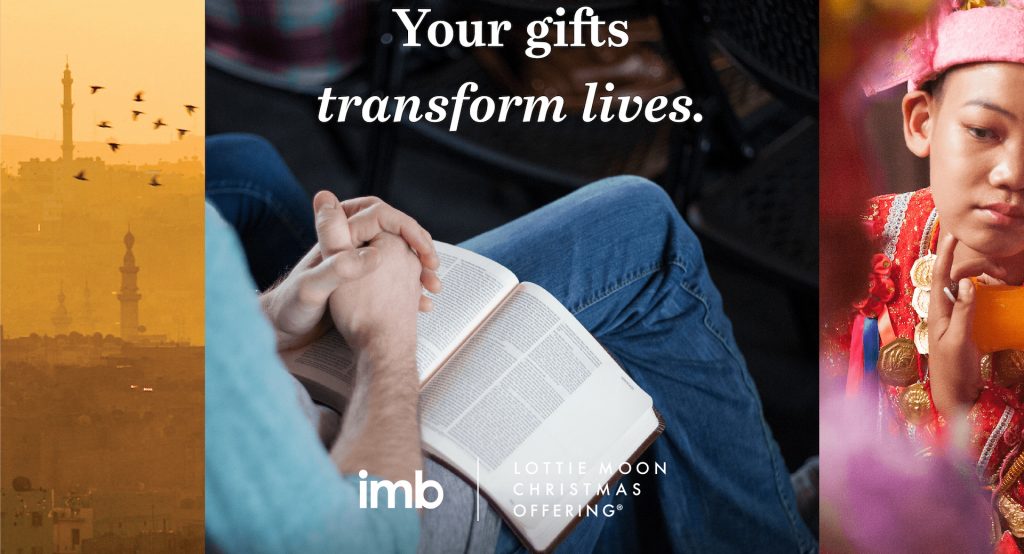
When I was a kid, Lottie Moon was simply the name I associated with the rice-bowl-shaped piggy bank I filled with coins at Christmas. Every December, my church handed out those oddly shaped banks, I stuffed one as full of coins as I could, and I took it back to church on the day designated for the Lottie Moon Christmas Offering.
At the time, all I knew was Lottie Moon was the special offering my church collected in December. But I didn’t know to whom or for what the offering was collected. I didn’t know the bank was shaped like a rice bowl to symbolize Lottie’s work in China. I didn’t know the significance of Lottie Moon and her contribution to international missions. I didn’t know the money was going to missionaries who were taking the gospel to those who had never heard it before. Filling the bank was just that thing we did at Christmastime.
“Over the years, the Lord has developed in me a love for the nations and a desire to participate in his work among unreached peoples.”
But over the years, the Lord has developed in me a love for the nations and a desire to participate in his work among unreached peoples. I’ve had the privilege of visiting missionaries around the world, sharing the gospel in unreached areas, and studying missionaries throughout history—including Lottie Moon. Now I give to the Lottie Moon Christmas Offering (LMCO) not just because it’s what you do at Christmastime. Now, I give for much more significant reasons.
I Believe in the Work of the IMB
To be clear, I believe in the work of all missionaries who are taking the gospel to unreached areas and making disciples of all nations, even if they are not affiliated with the International Mission Board. I am thankful for local churches and other sending organizations who work together to see the Great Commission fulfilled.
But there are a few practical reasons why I specifically give to the IMB. A big motivator is the simple fact that as a Southern Baptist, I most closely align with the doctrine and missiology that drives much of what the IMB does.
Additionally, because of the generosity of Southern Baptist churches through Cooperative Program and LMCO giving, most IMB missionaries are fully funded, meaning they do not have to raise their own financial support. So IMB missionaries are able to stay in their host country for longer periods of time without having to return home every year or two to fundraise.
And when these missionaries come back in the US for their stateside assignments, they are able to rest and enjoy time with friends and family. Their visits to supporting churches are full of reunions, updates, and times of prayer—without the stress of asking for money so they can go back to their host country. Fundraising for missions is not inherently bad, but it’s just nice when you don’t have to do it.
This kind of financial support also means that small churches are as capable of sending missionaries as large churches because they aren’t limited by a lack of financial resources. They do not have to shoulder the burden of fulling funding their missionaries. LMCO allows churches to cooperate—to pool their resources—in support of missionaries who come from large and small churches alike.
I Give with Specific Missionaries in Mind
I have a stack of approximately twenty missionary prayer cards sitting on my bookshelf. On each card is the face of a personal friend serving in an unreached area. Some of these cards don’t list full names because these friends are serving in areas hostile to the gospel. Every time I look at these cards, the words of Paul to the church at Philippi go through my mind: “I thank my God every time I remember you. In all my prayers for all of you, I always pray with joy because of your partnership in the gospel from the first day until now” (Phil. 1:3–5 NIV).
I walked through the sending process with many of these friends. I attended sending celebrations for them and have spent many hours emailing, texting, and video chatting with them while they’re gone. It’s a bittersweet time for both parties. We are sad to see our friends leave, and we miss them. They struggle with leaving family, friends, church, and everything familiar.
The task of missions is a weighty one. Not only do these friends leave everything behind but many go to places where the gospel is totally unknown. They experience an unreached culture in ways they might not have before. They are burdened by the multitude of people around them who are without Christ. But these friends have made sacrifices to boldly take the gospel to places where people may have never even heard the name of Jesus before. When I give to LMCO, I give with my friends in mind.
I Give Because I’ve Received
Between the two of us, my husband and I have both been on the receiving end of generous support from others toward our missions experiences. My husband served with the IMB for two years, so he was a direct recipient of LMCO. And I have received generous support from those who have given above and beyond their Cooperative Program and LMCO giving to support people like me on short-term and mid-term trips. Giving to LMCO is one way we express gratitude to those who have gone before us in their giving. It’s an attempt to be good stewards of the opportunities and resources the Lord has given us.
I don’t take for granted that at any time, the Lord may lead us to become full-time missionaries ourselves. For now, though, we remain in the US. And we are just as committed to supporting and participating in missions in whatever ways we can from here. Giving to LMCO is just one way we can help mobilize churches to fulfill the Great Commission all across the world.
Meredith Cook is a content editor for the International Mission Board. She has an MDiv in missiology from Southeastern Baptist Theological Seminary. She and her husband live in Houston, Texas. Find her on Twitter @MeredithCook716.


